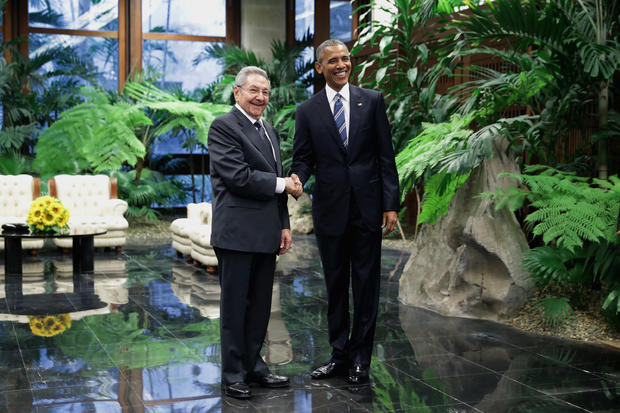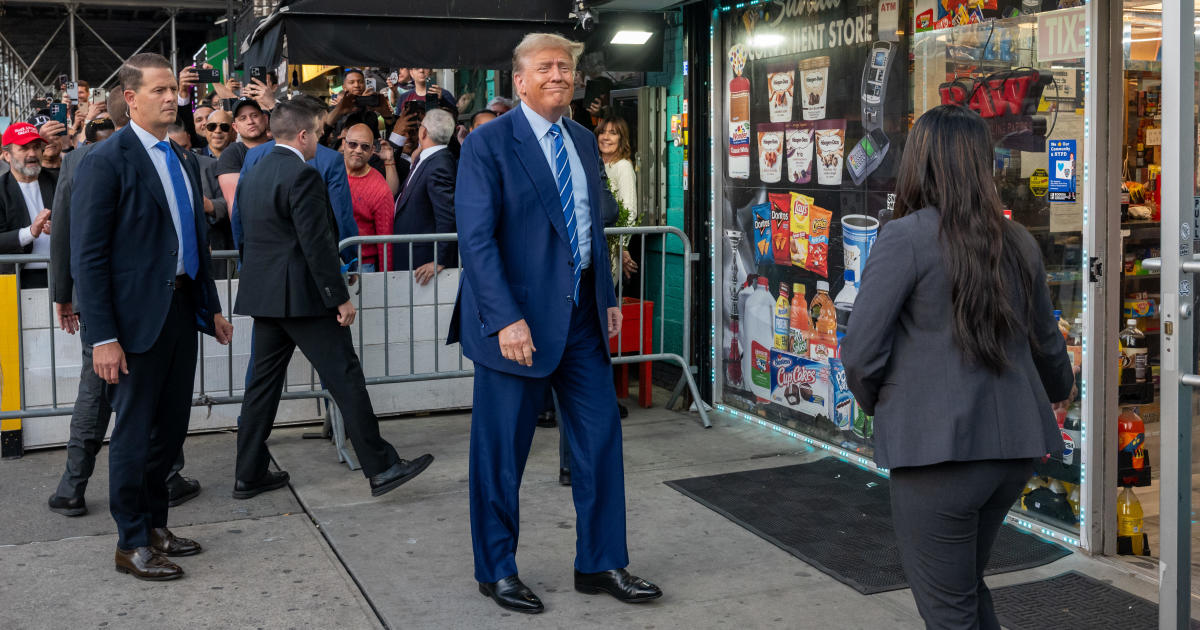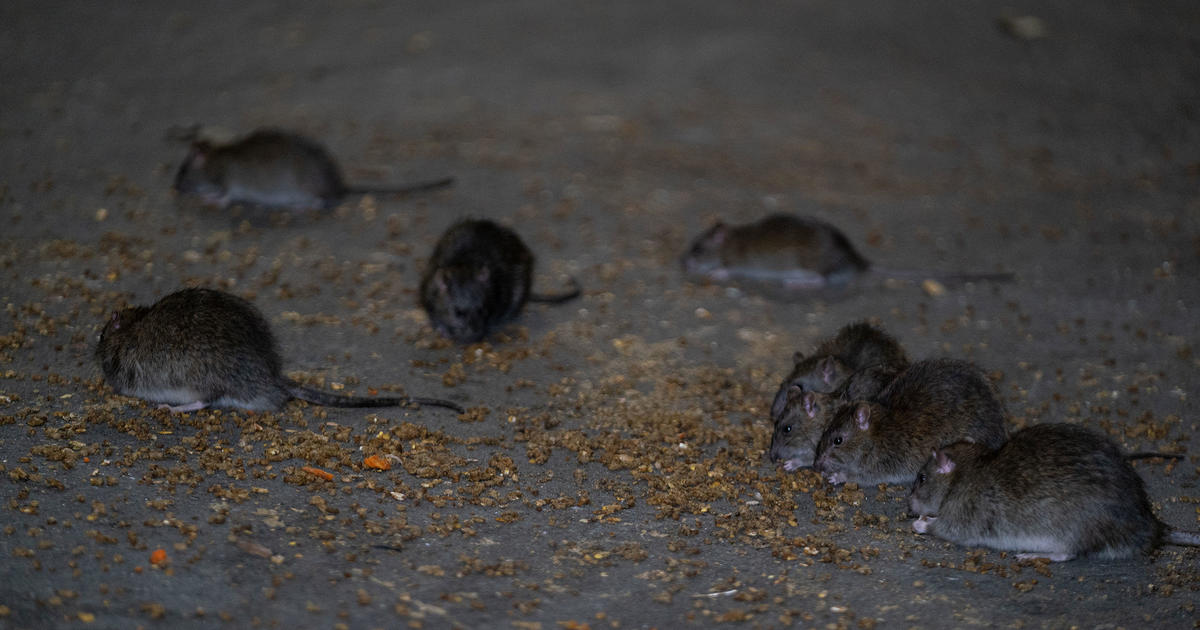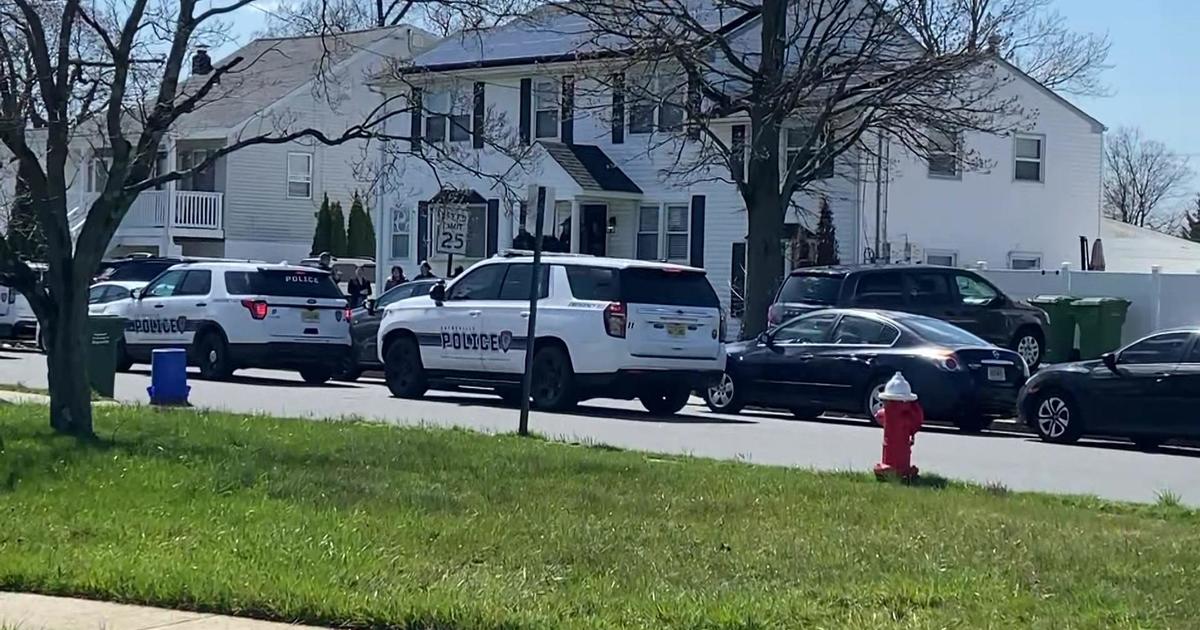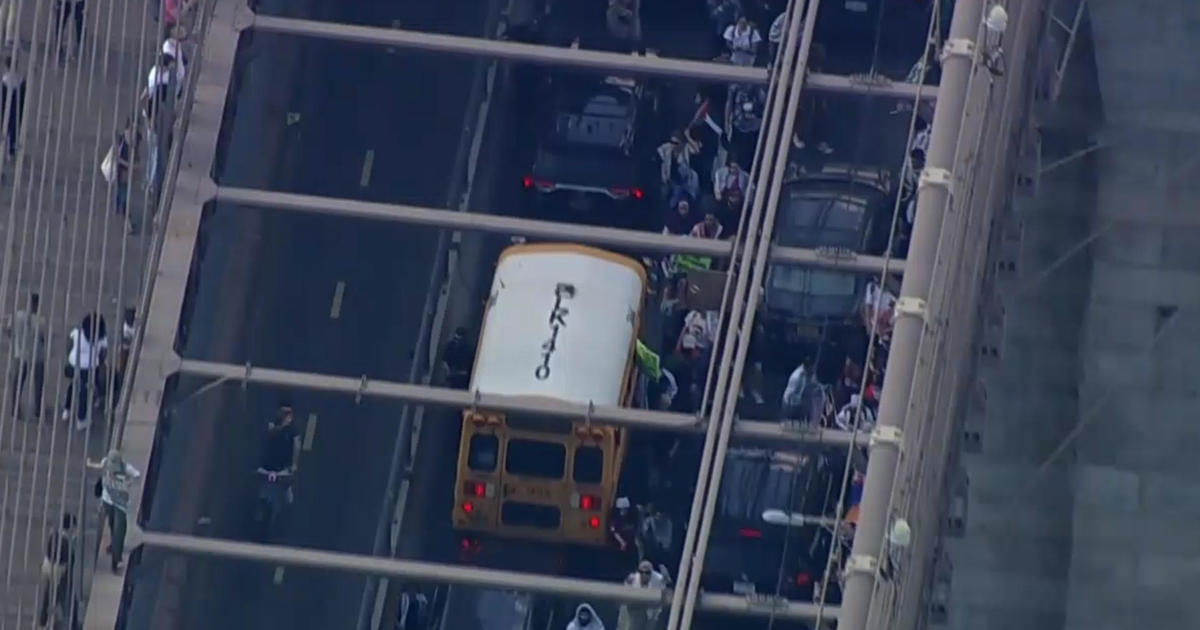Obama: 'The Future Of Cuba Will Be Decided By Cubans'
HAVANA (CBSNewYork/AP) -- Cuban President Raul Castro called on President Barack Obama on Monday to lift longstanding U.S. trade and other restrictions as he and Obama pledged to move forward with normalizing relations between Cuba and its longtime Cold War-era foe.
"This is a new day," Obama said, standing alongside Castro after their meeting at Havana's Palace of the Revolution.
PHOTOS: The Obamas In Cuba
In a history-making meeting in Havana, Castro praised Obama's recent steps to relax controls on Cuba as "positive," but deemed them insufficient. He called anew for the U.S. to return its naval base at Guantanamo Bay to Cuba and to lift the U.S. trade embargo.
"That is essential, because the blockade remains in place, and it contains discouraging elements," Castro said.
Obama came to Cuba pledging to press its leaders on human rights and political freedoms, and vowing that the mere fact of a visit by an American leader would promote those values on the island. Castro worked to turn the tables on Obama by saying Cuba found it "inconceivable" for a government to fail to ensure health care, education, food and social security for its people -- a clear reference to the U.S.
"We defend human rights," Castro said. "In our view, civil, political, economic, social and cultural rights are indivisible, interdependent and universal."
CBS2's Jessica Schneider reported Monday Castro seemed to get angry when a CNN reporter asked why the Cuban government cracks down on and imprisons political dissidents.
"Give me a list of the political prisoners and I will release them immediately," Castro said. "Just mention a list. What political prisoners? Give me a name or names. When this meeting is over you can give me a list of political prisoners and if we have these political prisoners, they will be released before tonight ends."
Obama said he had raised "very serious differences" the U.S. has with Cuba on democracy and human rights, but portrayed those difficult conversations as a prerequisite to closer relations. Crediting Cuba for making progress as a nation, Obama said part of normalizing relations between the two countries means "we discuss these differences directly."
"The future of Cuba will be decided by Cubans -- not by anybody else," Obama said. "At the same time, as we do wherever we go around the world, I made it clear the U.S. will continue to speak up about democracy, including the right of the Cuban people to decide their own future."
Obama also pushed the U.S. government to lift economic restrictions on Cuba, something that can only be done by Congress.
"The blockade stands as the most important obstacle to our economic development and the well-being of the Cuban people," Obama said.
As Castro prepares to step down in 2018, he's held firm against any changes to Cuba's one-party political system.
The president opened the first presidential visit to Cuba in nearly 90 years on Sunday when he landed in Havana. This the first visit by a sitting president since 1928 when Calvin Coolidge visited with President Gerardo Machado.
"Back in 1928, President Coolidge came on a battleship. It took him three days to get here. It only took me three hours," Obama said. "For the first time ever, Air Force One has landed in Cuba."
Strolling through grand cobblestoned plazas with his wife and daughters, the president created an indelible image of the peacemaking that he and Castro are pursuing.
"This is a historic opportunity to engage directly with the Cuban people and to forge new agreements, commercial deals to build new ties between our two peoples," the president said.
Dozens of protesters were arrested in the streets of Havana Sunday as Obama prepared to land.
The three-day trip comes after three years of working to open relations between the U.S. and Cuba.
According to a new CBS News/New York Times poll, a majority Of Americans support restoring U.S.-Cuba diplomatic ties.
The poll found six in 10 Americans think restoring diplomacy with Cuba is "mostly good" for the U.S. and 40 percent say it will lead to "more democracy" in Cuba, CBS News reported. Three percent say "less" and 50 percent say it will make "no difference."
But not everyone is applauding the president's visit.
In Union City's Little Havana, Maggie Orozco said the U.S. isn't "getting anything back'' as it normalizes relations with Havana. Her family had to flee Cuba under Fidel Castro.
"There is too much going on in Cuba and too much poverty, misery and too much going on before we can actually have a relationship with Cuba," said another Union City resident, Theresa Muniz.
On the last day of their whirlwind trip, the Obama family will catch an exhibition game between the Tampa Bay Rays and the Cuban national team.
Obama and Castro have met before. They first shook hands in 2013 in South Africa at the Nelson Mandela's funeral.
(TM and © Copyright 2016 CBS Radio Inc. and its relevant subsidiaries. CBS RADIO and EYE Logo TM and Copyright 2016 CBS Broadcasting Inc. Used under license. All Rights Reserved. This material may not be published, broadcast, rewritten, or redistributed. The Associated Press contributed to this report.)
